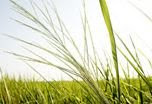
Through all the noise out there right now, we look for ideas that could truly make a difference. Our criteria is:
1) The technology must be at least 35% Carbon Positive
2) The potential scale of operation must be large enough to deliver 10% of the current US Demand for electricity
3) The cost, post inflection point, must be 20 cents per kWH or less Without subsidies and tax credits (because the government can't afford to subsidize all our consumption).
+++++++++++++++++++++++++++++++++++++++++++++++++++
One that has real potential is Torrefied Plant Material. New work out of NC State is showing some interesting numbers for a unit which converts plant material into a powdery charcoal like material in the field.
The numbers look promising, because the cost of material handling is significantly reduced. In most waste-to-energy applications, the cost to move and handle low BTU material creates the barrier to economic viability.
Furthermore, the resulting fuel (think charcoal chips and powder) can theoretically be co-burned with coal in existing power plants. This is what makes it exciting. A power producer could have a renewable fuel which could be added based on the relative cost of delivered Torrefied BioMass to Coal.
Two 'test burns' are scheduled for 2008. We'll be monitoring this space. Check back or contact us for updates.
If current Torrefied Pine Wood can be utilized in a coal fired plant, the next step to viability would be developing plant species for BTU value vs. food value or fiber strength. The ideal feedstock would be the kind that grows on marginal land, avoiding the current ethanol "Fuel at the expense of Food" debate.


